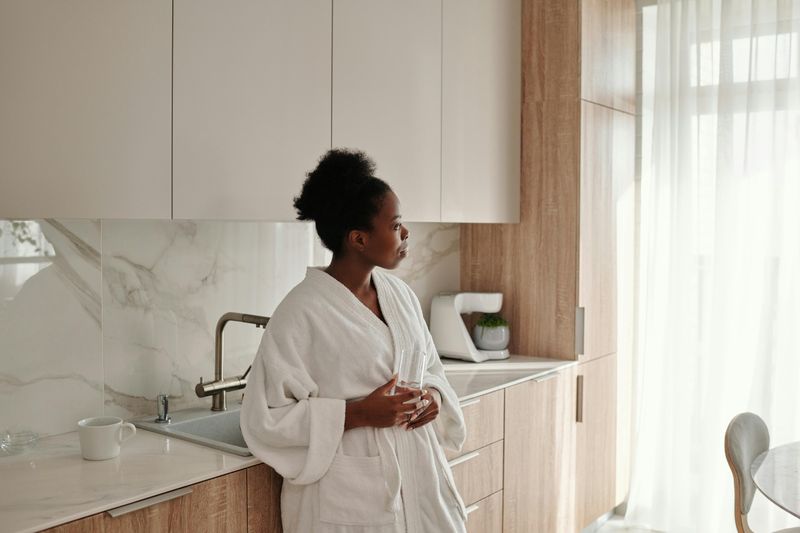12 Secret Strengths of People Who Are Perfectly Happy Being Alone

Some people light up in crowds, while others find their power in quieter moments. Those who genuinely enjoy being alone aren’t lonely—they’ve discovered something most people spend years searching for: the ability to be completely content in their own company.
This isn’t about avoiding others or being antisocial; it’s about embracing independence and building a life that doesn’t require constant validation or companionship to feel complete.
1. They Know Their Worth in Relationships

Settling for less than they deserve? Not happening. These individuals understand that being single beats being in a relationship that drains their energy or disrupts their peace.
They’ve learned that their value isn’t determined by whether someone chooses them. Instead, they focus on choosing themselves first, which naturally attracts healthier connections. Desperation has no place in their dating life.
Patience becomes their superpower when it comes to love. They’d rather wait years for something genuine than waste months on something mediocre. Their standards aren’t impossibly high—they’re just right for someone who knows what they bring to the table.
2. They’re Comfortable Doing Anything Solo

Dining at a restaurant, catching a movie, or wandering through a new city—these activities don’t require a plus-one for them. Freedom tastes sweeter when you’re not waiting for someone else’s schedule to align with yours.
Going solo means making every choice based purely on what brings you joy. No compromises about where to eat or what time to leave. Just pure, unfiltered experiences shaped entirely by your preferences.
This independence becomes a lifestyle rather than a backup plan. Being alone transforms from something to avoid into something to embrace, opening doors to adventures that might never happen otherwise.
3. They Choose Solitude, Not Isolation

There’s a massive difference between hiding from the world and consciously enjoying your own presence. Solitude is an active choice, while isolation feels like punishment.
People who thrive alone have mastered the art of self-companionship. They’ve discovered that being by themselves doesn’t automatically equal loneliness. Instead, it’s an opportunity to connect with their thoughts, interests, and inner world without external noise.
This intentional approach to alone time creates a foundation of emotional stability. They’ve built a relationship with themselves that’s so fulfilling that other people become additions to their happiness rather than the source of it.
4. They Protect Their Energy Wisely

Social events can be fun, but they’re also draining for those who recharge in quieter spaces. Recognizing this need isn’t weakness—it’s self-awareness at its finest.
After spending time in crowded places or engaging in lengthy conversations, they honor their need to retreat and reset. This recovery time isn’t optional; it’s essential for maintaining their emotional balance and showing up authentically in the world.
Protecting energy means setting boundaries around social commitments. They understand that saying yes to everything leaves nothing for themselves, so they carefully choose which invitations deserve their limited social battery.
5. They Prioritize Peace Over Company

A packed social calendar doesn’t automatically equal a fulfilling life. Some people have learned that inner calm matters more than appearing popular or constantly busy.
They’re selective about who gets access to their time and space. Only those who genuinely uplift and energize them make the cut. Everyone else? Politely kept at a comfortable distance that preserves their mental health.
This isn’t about being antisocial or unfriendly. It’s about understanding that quality always trumps quantity when it comes to relationships. A quiet evening alone beats a chaotic gathering with people who drain your spirit.
6. They Say No Without Guilt

Turning down invitations used to feel like rejecting people, but not anymore. Boundaries aren’t built from rudeness—they’re constructed from self-respect and honesty.
Mastering the art of saying no means understanding that your time and energy are valuable resources. Spreading yourself too thin helps nobody, especially not yourself. Every yes to something unimportant is a no to something that truly matters.
Guilt no longer accompanies their refusals because they’ve realized that healthy relationships can handle honest communication. Friends who respect boundaries stick around. Those who don’t? They naturally filter themselves out, making room for better connections.
7. They Exude Quiet Confidence in Public

Walking into a room alone doesn’t trigger anxiety or self-consciousness for them. Instead, they move through spaces with an ease that comes from genuine self-acceptance.
Being seen without a companion doesn’t feel like a statement that needs explaining. Their comfort in their own skin radiates outward, creating a magnetic presence that others notice. Confidence isn’t loud or performative—it’s simply being okay with who you are.
This self-assured energy changes how they experience public spaces. Restaurants, concerts, parks—all become accessible without needing someone to validate their presence. Independence becomes visible in every step they take.
8. They Find Comfort in Their Own Stillness

Silence isn’t something to fill with distractions or background noise. For those comfortable with solitude, quiet moments provide the most profound sense of peace.
They’ve discovered that constantly consuming content or surrounding themselves with noise prevents genuine self-connection. Stillness allows thoughts to settle, emotions to process, and clarity to emerge from the mental chaos that daily life creates.
This comfort with silence extends beyond meditation or intentional quiet time. Even everyday moments—morning coffee, evening walks, or simply sitting—become opportunities for presence rather than problems requiring solutions. Peace lives in these uncluttered spaces.
9. They Draw Creativity from Solitude

Ideas need space to breathe, and constant social interaction can suffocate inspiration. Creativity flourishes in the quiet gaps between conversations and commitments.
Without distractions pulling their attention in multiple directions, their minds wander freely through possibilities. This mental freedom allows connections to form between seemingly unrelated concepts, sparking innovation that rarely happens in crowded, noisy environments.
Time alone becomes sacred creative territory. Whether they’re writing, painting, problem-solving, or simply daydreaming, solitude provides the mental canvas where their best ideas take shape. The world’s noise fades, and imagination takes center stage.
10. They Seek Depth, Not Attention

Small talk feels like eating cotton candy—temporarily sweet but ultimately unsatisfying. Those who value alone time crave conversations that actually mean something.
They’d rather have one friend who truly understands them than a dozen acquaintances who know only surface-level details. Their relationships are built on authenticity, vulnerability, and mutual respect rather than social convenience or appearances.
This preference for depth over breadth shapes how they approach all connections. Quality conversations that explore real thoughts, feelings, and ideas energize them. Everything else? Just noise that takes up space without adding value to their lives.
11. They Trust Their Instincts Completely

Spending time alone with your thoughts builds something powerful: unshakeable intuition. They’ve learned to distinguish between fear and genuine gut feelings through countless quiet hours of self-reflection.
Decision-making becomes easier when you know yourself deeply. They don’t need to poll friends or seek constant validation before making choices because their internal compass has been calibrated through solitude and self-awareness.
This trust in their instincts extends to all life areas—career moves, relationship decisions, and daily choices. They’ve developed confidence in their judgment that comes only from listening to their inner voice without external interference drowning it out.
12. They’re Grounded in Self-Assurance

External validation used to feel necessary, but not anymore. Their happiness comes from within, built on self-knowledge and acceptance rather than others’ opinions or approval.
This self-assurance isn’t arrogance—it’s the quiet certainty that comes from knowing who you are and being okay with it. They’ve stopped performing for audiences that don’t matter and started living authentically for themselves.
Independence becomes a reflection of genuine inner strength when it’s rooted in self-assurance rather than fear. They’re alone not because they can’t connect with others, but because they’ve connected so deeply with themselves that loneliness no longer exists.

Comments
Loading…